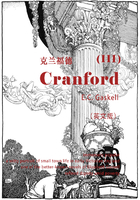THE BLIND MEN
THE BLIND MEN AND THE ELEPHANT
It was six men of Indostan
To learning much inclined,
Who went to see the Elephant
(Though all of them were blind),
That each by observation
Might satisfy his mind.
The First approached the Elephant,
And happening to fall
Against his broad and sturdy side,
At once began to bawl:
"God bless me! but the Elephant
Is very like a wall!"
The Second, feeling of the tusk,
Cried, "Ho! what have we here,
So very round and smooth and sharp?
To me 'tis mighty clear
This wonder of an Elephant
Is very like a spear!"
The Third approached the animal,
And happening to take
The squirming trunk within his hands,
Thus boldly up he spake:
"I see," quoth he, "the Elephant
Is very like a snake!"
The Fourth reached out an eager hand,
And felt about the knee:
"What most this wondrous beast is like
Is mighty plain," quoth he;
"'Tis clear enough the Elephant
Is very like a tree!"
The Fifth, who chanced to touch the ear,
Said: "E'en the blindest man
Can tell what this resembles most;
Deny the fact who can,
This marvel of an Elephant
Is very like a fan!"
The Sixth no sooner had begun
About the beast to grope,
Than, seizing on the swinging tail
That fell within his scope,
"I see," quoth he, "the Elephant
Is very like a rope!"
And so these men of Indostan
Disputed loud and long,
Each in his own opinion
Exceeding stiff and strong,
Though each was partly in the right,
And all were in the wrong!
Moral:
So oft in theologic wars,
The disputants, I ween,
Rail on in utter ignorance
Of what each other mean,
And prate about an Elephant
Not one of them has seen!
—John Godfrey Saxe (1816-1887)
CHALLENGING OUR CERTAINTY
A revolution in project work has exploded over the last decade. Companies now create products in radically different ways than before. Instead of dedicated teams mustered to achieve reasonable goals, cross-functional, highly technical, fast-time-to-market– driven teams are common. Product requirements have shifted away from a definite set toward an indefinable one. Not surprisingly, product-development teams now disappoint more often than they deliver. Many more projects fail to satisfy their sponsors' expectations than ever satisfy them.
Most project traditions persist in spite of these fundamental changes. Most companies expect project managers to control these projects the way they controlled simpler projects in the past.
Management lays fixed track, expecting everyone to get on it and stay on it, or get back on it should they stray.
Funding authorities cling to traditional success criteria, expecting "on-time, on-budget, on-spec" performance, in spite of this shifting context.
Auditors continue to expect detailed plans early in projects, even though both auditors and project managers know they will be shocked by the magnitude of the changes in them over time.
Managers still gauge progress by inches, expecting their team members to explain every deviation from the plotted course.
I speak with a certain client every few months. He's spearheading his organization's process-improvement effort. He reports his shortcomings each time we chat. His original plan targeted a broad set of changes. A few months later, his results forced him to reduce the scope. His fallback plan called for heavy customer involvement, which the customers couldn't deliver. He's frustrated with his obvious lack of progress. Every time we talk, he reports that he's working longer hours. "This place just doesn't get it," he says. "The status quo seems to be winning."
He has finally accomplished a significant toehold toward his objective, but he expected to be at the top of the cliff by now. Rather than celebrating his significant breakthroughs, he punishes himself and those around him for an obvious "lack of progress." Of course the breakthroughs don't seem very significant when compared with what the original plan said was supposed to happen.
Some authors call these projects "wicked." I think this term misses the point. James Thurber told the story of his Civil War– veteran grandfather's relationship with the automobile. His grandpa thought of his car as just another sort of horse, and a particularly stupid and unmanageable horse at that. He never learned that the automobile would not turn when told to and that cars need different guidance techniques from what horses need. He died blaming the stupid car for his accidents. Calling these projects "wicked" duplicates Grandpa Thurber's error. Approach them inappropriately and they instantly become wicked.
I prefer the term fuzzy. "Wicked" sounds as if our automobile has something against us. "Fuzzy" sounds indistinct without suggesting any evil motive. Like Grandpa Thurber with his Hupmobile, we turn our otherwise innocently fuzzy projects into wicked ones. Our traditions, like Grandpa Thurber's, seem the source of what we experience as wicked:
We create maps without surveying the territory.
We follow these maps as if they were based upon knowledge rather than belief.
We oblige others to follow these imaginary maps, as if following imaginary maps were reasonable.
We promise rewards if targets are reached, as if any individual controlled the imaginary maps' accuracy.
We threaten to punish those who miss targets, as if missing targets meant that someone had a personal problem or a professional shortcoming.
Our promises and threats justify a remarkable variety of inhuman acts:
Requiring "voluntary" sacrifices as if they demonstrate sincere commitment.
Demanding obedience as if that demonstrates dedication.
Suspecting others as if that demonstrates prudence.
Coercing as if that could encourage people to work together.
Punishing as if that motivates.
"Holding feet to the fire" as if that would entice action.
Misery results from these tactics more often than does project success. Until I started working in Silicon Valley, I had never met anyone making a quarter of a million dollars a year who felt taken mean advantage of by his or her employer. I've met several there.
We create the wickedness we experience as "wicked projects." We do this by interpreting our experiences in ways that not only undermine our success but guarantee meaninglessness. This simple acknowledgment transforms these experiences. I am never a powerless victim unless I abrogate my authority as the author of my own meaningless experiences. I have a guaranteed never-ending search for resolution as long as I believe that this wickedness originates somewhere else. Acknowledging myself as the source gives me the power to master these difficult experiences.
But mastering means losing some of the notions that helped me feel so powerful in the past. My convictions crumble as I accept that I cannot plan predictively enough to keep myself or anyone else safe from encountering unsettling information along the way. I can be confident only that our project will not turn out as planned. Incompetence no longer explains missed obligations, nor can I guarantee success by promising juicy payoffs. My certainties have to crumble, too. I cannot manage my project as if it were a manufacturing process. Deviations aren't necessarily bad. They can signal more meaningful success.
Our projects have shifted into a world where
Personal sacrifice won't repel failure.
Obedience can't attract success.
Failure doesn't mean that anyone was untrustworthy.
Coercion compromises capabilities.
Punishments and enticements don't motivate.
If this shift seems scary to you, welcome to the club. It seems scary to me, too. I've concluded that shifting away from my confidence and my convictions should scare and confuse me. What experience could have prepared any of us for challenging our own certainties?
CONFUSING OURSELVES
I recently read a blurb about a new project management book. It promised to teach me how to act in order to make my projects successful. I thought, "Is this theater?" Perhaps it is.
Within that book's frame of reference, the project manager is the playwright, the casting director, and the acting coach. The project manager creates the script for the project. Then he acts as casting director, assigning roles and responsibilities. Then, switching roles again, he coaches his cast into following his script. The acting-coach project manager has a tool kit filled with techniques for compelling others to deliver predictable performances. He coaches by reasoning, persuading, or, if someone insists upon being unreasonable and contrary, by coercing. He assesses performance by observing behavior.
I've had my behavior "managed," just as I've managed others' behavior. Did I really force people to behave? I suppose I did. I created a plan, a script of obligations; then I held each actor's feet to the fire. Under these conditions, their contributions had all the juiciness of a mortgage payment. Each contribution became an obligation, when it could have been so much more. Why did I work so hard to create such mediocre results?
Most project managers bring this acting-coach frame of reference to their fuzzy projects. We might prefer something other than coercion, but what can replace this crumbling body of knowledge we call "project management"? Must we continue yelling at the steering wheel like Thurber's grandfather, unaware that we are the ones confusing ourselves when it doesn't respond?
CHOOSING MORE APPROPRIATE
FRAMES OF REFERENCE
Do we have to be in the behavior modification business to successfully manage projects? I have a devil of a time planning a project if I cannot predict how anyone will behave when working on it. I simplify planning if I can at least assume predictability. I can track and control more easily if everyone stays within my prescribed boundaries. But the fuzziness, the indistinctness, makes such predictions unlikely.
Methodologies attempt to shave this fuzziness from fuzzy projects by offering templates designed to make the indistinct more definite. Most work-breakdown structures must have been designed by the compulsive progeny of Frederick Winslow Taylor, the self-proclaimed father of scientific management. Taylor believed that each manager was the benevolent father of his workers; that the manager's proper role was to allocate work according to skills and to assign workers as required by the work, while limiting the opportunities for what Taylor called "soldiering"—what we might call "unplanned interaction." What passed for science when Taylor claimed his fatherhood doesn't pass for science anymore. Science advanced a century while Taylor and his now-pseudoscientific followers stood still.
Much of what we call "project management" stands upon Taylor's flat-earth perspectives. When applied to repeatable manufacturing situations, his primitive notions have great utility. The same ideas fall apart when applied in more human, less mechanical contexts. Success requires something other than simply shaving a project's fuzziness. Our well-intended barbering leaves us bound with unanswerable questions. We might want efficient projects, but how do we improve the efficiency of a single-instance project when efficiency can only be meaningfully considered as a function of many similar instances? We might want a good plan, but how can we create an effective script for a discovery when we cannot know at the start what we'll discover or how we'll discover it?
Our centuries-long struggle to predict our futures has come to this; innocent attempts to manage our futures create unmanageable ones, well-intended efforts to script the play undermine the purpose of the performance. Our directing guarantees mediocrity. We've filled our kit with tools we're much better off not using. Our traditions mislead us into using them anyway.
The unpredictability—the indistinctness of today's efforts— had better not be a problem, because this fuzziness has become an unavoidable feature of our present and future projects. Our projects' fuzziness ranks as no more (or less) of a problem than Grandpa Thurber's inability to tell his car to turn. Just like Grandpa Thurber's, our interpretations transform a benign feature into an unresolvable shortcoming. Grandpa Thurber's car was no more like a horse than our present projects are like past ones. It was as unreasonable for Grandpa Thurber to expect his car to behave like a horse as it is for us to expect ancient tactics to guide today's projects. Just like many project managers today, the old man created his own troubles by innocently overextending his frame of reference.
We each place our experiences inside such frames of reference, or frames. These frames subtly influence what we believe and how we behave. For instance, some people put driving a car into a "driving a race car" frame and so justify as appropriate a different set of behaviors from those of someone who puts driving into a "‘chauffeur"' frame. We are usually unaware of these frames' influence on us. We might not even experience making a choice as we step into another one.
The word project can push me unawares into a playwright/casting-director/acting-coach frame, in which I, as the project manager, automatically begin writing the script, selecting the cast, and coaching the performers. I'm both enabled and trapped by this frame. I'm enabled because a whole set of behaviors automatically kicks in whenever I employ this frame. I'm also trapped because another set of behaviors automatically evaporates. My choices are limited by whatever frame I choose (or whatever frame chooses me), so it's important that I choose appropriate frames. When I am unaware that I've chosen my frame, I am left, like Thurber's grandfather, missing opportunities to improve my own situation. I yell at a lot of steering wheels.
What frames might I choose for project work? Our traditions position my choices of reference frames along a continuum, ranging from authority to anarchy. As a project manager, I usually equated the degree of personal control with the likelihood of success, as if my participation guaranteed collective success. Can you hear Taylor's ghost rattling his compulsive chains?
There must be an infinite number of frames to choose from when considering project work. Some of the most popular project manager frames hold project managers to be
Fathers, where they coach and punish
Mothers, where they nurture and instruct
Magicians, where they pull rabbits out of hats
Zookeepers, where they keep the wild animals well fed in cages
Priests, where they exhort and forgive
Comedians, where they entertain
Teachers, where they instruct and grade
Lobbyists, where they influence the support of the powerful
Sheep, where they follow others' orders
Wolves, where they take advantage of sheep
Omniscient beings, where they know and see all (or are supposed to)
Village idiots, where they get it wrong no matter what they try to do
Each frame brings with it a set of frame-appropriate behaviors and a set of frame-inappropriate behaviors. What frame do you find yourself in when you participate in project work?
How would your present project be different if you looked at it from within a "projects are conversations between peers" frame? Such conversations are never scripted. The conversation's potential diminishes when one conversant controls the other's responses. Why even engage if you know how the conversation will turn out? How are conversations controlled? No one centrally controls them, yet anarchy does not usually define the outcome. Conversations are dances that literally find their own way, based upon the judgment and skill of the dancers. Skilled dancers' steps quite naturally integrate when the dancers hear the same music. Culture influences. Intent colors. No one decides how conversations conclude.
Most project wickedness starts because it seems appropriate at the time. I'm assigned a project. I unconsciously slip into my playwright/ casting-director/acting-coach frame. I plan the effort. I bring my schedule to you and entice you into engaging in the effort. I monitor your steps, keeping you on track by frequently reminding you of your promises and the payoff. You respond enthusiastically at first, but over time the obligation leaves you shuffling through deepening meaninglessness. I engage in a series of acting-coach, behavior modification activities, intended to get you "back on track." We both know it will be your fault if you fail to deliver. We both eventually understand that you cannot help but fail under the terms we've brought to the effort.
The leader and follower frames influence most projects today. Where appropriate, where the leaders can know enough to know where they are going and how to get there, where someone's simple compliance can guarantee success, these frames might be appropriate windows onto the world. Where these conditions do not exist, leader and follower metaphors fall apart. If no one knows, who should write the script? If the leader can't know, whom should the followers follow? In these circumstances, staying within these frames limits the questions we ask and the solutions we consider, encouraging a tenacious meaninglessness.
Putting a fuzzy effort into a leader/follower frame can justify no end of wickedness. A typical bout of such wickedness sounds like this: "You are required to estimate the unknowable and then commit to these projections so that you can be rewarded based upon your delivery." You know you have only random influence over the outcome. How could this not become a meaningless frame?
Changing the frame can change everything. If I want to change my behavior, I'm best able to do it not by laboriously changing my behaviors (that's hard) but by changing the frame within which these behaviors seem appropriate (this can be easy). I create the potential for everything else to change when I shift my interpretation of my experience. After my seven-year-old son came home from school and said, "Daddy, my teacher said that smoking kills people. Are you trying to kill yourself?" I couldn't continue thinking about smoking in the same way. I still had the habit, but rather than satisfying me, it unsettled me. I quit smoking within six months. I could imagine no other way within this new frame to resolve the contradiction of a pleasurable experience that unsettled me.
Neither you nor I can operate without frames; no one can. And while we might not be aware of the frame surrounding us, some frame must always be there. These windows make our experiences meaningful. We cannot do away with frames, but we can become more aware of the frames we employ and choose to employ more personally meaningful ones.
The search for a more meaningful way of coping with our fuzzy responsibilities might not require anything more than choosing a different frame of reference, and only we can be in charge of making this choice. Changing our behaviors seems doomed to fail. Increasing our leaders' authority seems beside the point—just so much yelling into the steering wheel. If we can find more appropriate frames of reference, new sets of more steering wheel–appropriate behaviors might quite naturally emerge. We might even find ourselves using our steering wheels for steering.
A DIFFERENT SET OF POSSIBILITIES
What frame might be more appropriate for coping with our fuzzy responsibilities?
I like the "Blind Men and the Elephant" frame. For me, it perfectly captures the spirit of these undertakings. I suppose John Godfrey Saxe could have had no idea of the power that his simple poem could bring to those of us trying to pull meaningful results out of fuzzy projects. He chooses six blind men to examine an elephant that none can see. Each discovers something unique. Their discoveries perfectly match the key dilemmas facing all of us who are blindly pursuing our own meaningful results:
One blind man interprets the side of the elephant as being the wall between himself and anything meaningful.
Another blind man interprets the elephant's tusk as being the spear that a good soldier might feel obligated to carry into battle.
Yet another blind man interprets the trunk as being the snake that no one should trust.
Still another blind man interprets the elephant's leg as being the tree trunk supporting his efforts.
Another blind man interprets the elephant's ear as being the fan that he might use to coax an ember into a flame.
And the last blind man interprets the elephant's tail as being the rope that can tie together a coherent whole.
Our wickedest projects feature much of what Saxe characterizes as "rail[ing] on in utter ignorance of what each other mean." These arguments illustrate the most common fuzzy-project problem, incoherence—the inability of blind men to create common interpretation from their shared experience. Their differing frames of reference and their "utter ignorance" of each other's frames create their encumbering incoherence.
The incoherence that comes from employing inappropriate frames of reference creates the wickedness that victimizes us so. How different might their experiences be if each blind man could embrace every other blind man's different and disturbing testimony? They don't have to share the same frame if they can accept and integrate each other's stories about their unique frames. No meaningful elephant appears for the blind men without this simple but elusive capacity. If each cannot share this understanding, their interactions spawn no more than the same complications found in their "theologic wars" we call wicked projects.
What happens to our actor and director roles within the "Blind Men and the Elephant" frame? A predictable wickedness results if one of the blind men has more authority than the others and becomes stuck within the director frame. This director can inadvertently destroy collective meaning by insisting that everyone describe his or her elephant piece as being very much like his "fan." Another sort of wickedness results when one of the blind men becomes stuck within an actor frame and, because he doesn't want to appear insubordinate, reports that his elephant leg seems like a fan. Incoherence reigns in both situations. No elephant emerges.
Each of us blind men shares the same dilemma: How might we transform our project's fuzziness into coherent, collectively meaningful results? In the following chapters I describe how shifting my frames of reference has transformed my project work's fuzziness into more meaningful results, even when those around me were unable or chose not to shift their frames. We are each a marvel of adaptive ability, but we unnecessarily hobble ourselves whenever we unconsciously adopt inappropriately limiting frames of reference. I hope this book will help you become more aware of the frames you use, improve your ability to choose more meaningful frames for yourself, and help you to help others find more useful frames for their parts of your common experience.
In the following chapters, I will introduce you to this elephant of meaningful coherence and to each of the blind men's perspectives, embracing in turn their wall, their spear, their snake, their tree, their fan, and their rope. May you find here more meaningful possibilities than you've found within frames of reference you've used in the past.















